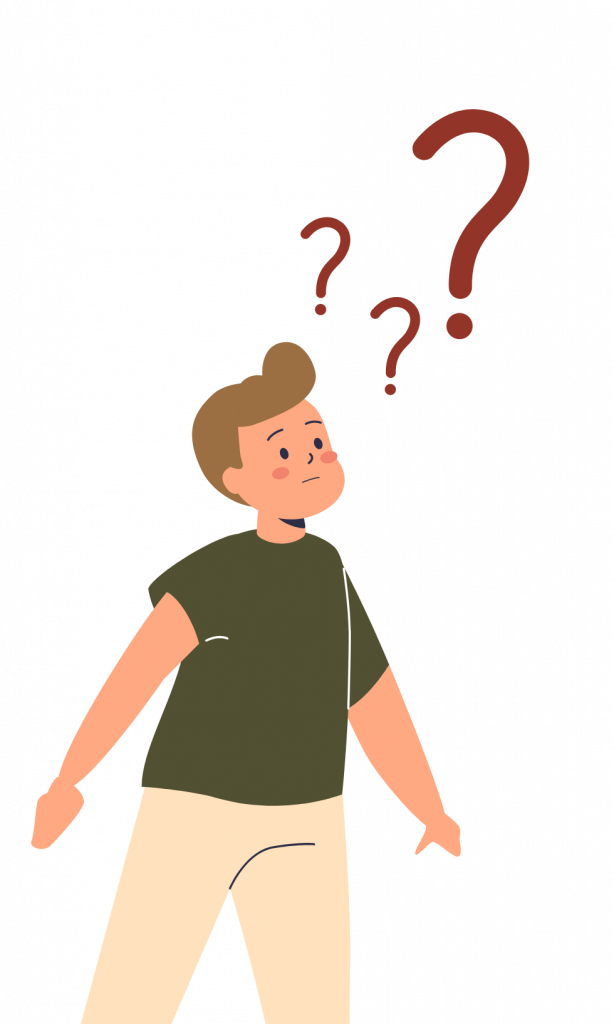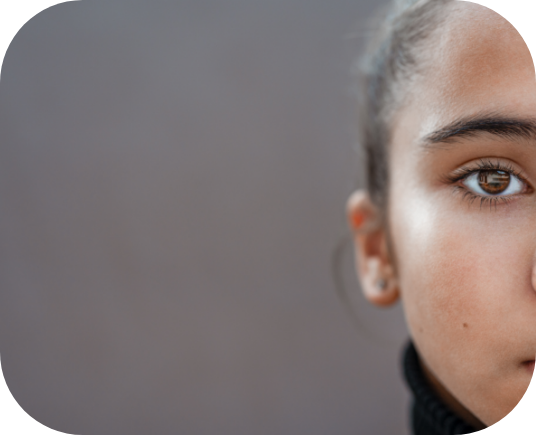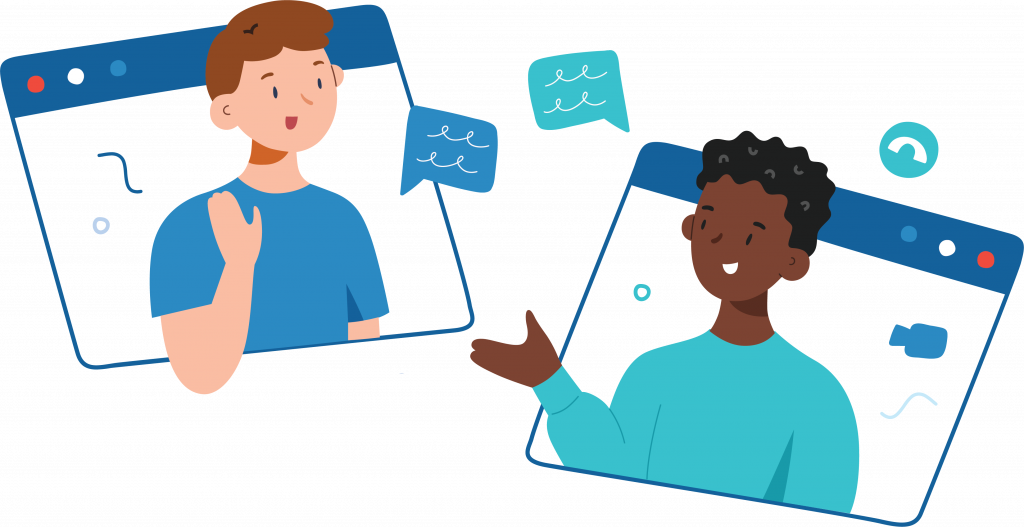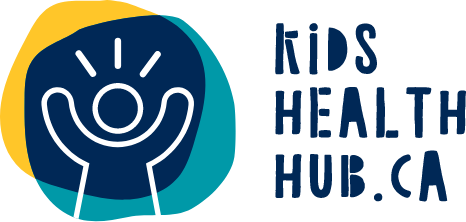

Substance Use/Abuse
What Is It?
Sometimes our friends experiment with substances, but when does it become a problem? It is a problem when the person uses the substance even though it causes issues in their life. The person thinks about using the substance a lot. Substance use disorders can also be called addictions.
Addictions begin to impact the brain and how it operates. There may be changes in the person’s personality, logic, reasoning, memory, and learning. It begins to impact the brain’s structure. In the brain, there is a reward pathway. When it is activated, it feels good. When a drug is taken excessively, it activates the reward pathway. It rewards the person, so they keep wanting to do the thing which feels good. The person might start ignoring responsibilities to chase the feelings.
People can also have addictions to behaviours (activities) or substances. These behaviours can also activate the reward pathway in the brain. These behaviours can include gambling, gaming, shopping, and more. Behavioural addictions also negatively impact a person’s life and relationships.
Myths and Facts
FACT – Addiction is not a choice.
While it can feel like a person prioritizes the substance or behaviour over other aspects of their life, it is not that simple. Addiction is a brain disease. It is not a person simply choosing the substance over other things. A big part of addiction is a person’s inability to stop or moderate their use. This loss of control is the result of changes in the brain from the addiction.
FACT – Marijuana is addictive.
There is a common misconception marijuana is not addictive. This is wrong. The psychoactive ingredient in marijuana is commonly referred to as THC. People can become addicted to THC. It impacts the brain. When a person uses more, they need more of the substance to feel normal. If a person stops using marijuana, it can result in withdrawal symptoms (moodiness, tiredness, feeling on edge, irritability, etc.). If a person uses marijuana before their brain is fully developed (mid-20s), this can impact their brain development.
FACT – Lorem ipsum
A person with addiction is not in control of their cravings. The reward pathway in their brain has been activated repeatedly which makes the craving stronger. The brain really wants the thing the person is addicted to. If a person does not get the thing they are addicted to, it can make them sick and have withdrawal symptoms.
FACT – While some people see experimentation as a rite of passage, substance use in teens can have negative consequences.
A little experimenting never hurt anyone, right? This unfortunately is not true. Before a person is in their mid-20’s, their brain is not fully developed. If someone uses drugs before their brain is fully formed, it can increase the chance of negative consequences, like mental health concerns and poor health as an adult.
FACT – It is possible to be addicted to prescription drugs like any other substance.
When someone uses a prescription outside of a doctor’s recommendation, it can have dangerous consequences. This is drug abuse. Some people think they are safe because they come from a pharmacy, but that is wrong. While prescription drugs are safe for the person to whom the doctor has given the medication, it is not safe for others to use them without talking to a doctor.
FACT – In addition to being addicted to substances, a person can be addicted to a behaviour or action.
Behavioural addictions can be to activities such as food, gaming, social media, the internet, and shopping. The person can feel calm or happy when they do the activity they are addicted to. Addictions to substances and actions have similar characteristics, like increased tolerance, cravings, change in mood, issues with relationships, and a hard time controlling or stopping the behaviour.


Causes of Substance Use/Abuse
There are several reasons why someone might start using drugs or using the behaviour. The person might be trying to escape, deal with stress, peer pressure, experimentation, or enhance performance. It depends on the person and their experiences. Not everyone who tries drugs (or the activity) will become addicted, so why do some people become addicted, and others do not?
Causes of substance abuse can include:
- Family history
- How long a person has been using
- A person’s environment
- And more
What Does It Look Like?
Addictions can look like:
- Cravings or strong urges to use substances
- Hard time cutting back or controlling the substance
- Thinking about using the substance
- Using more than intended
- Neglecting responsibilities
- Problems with relationships
- Lying, stealing, etc. from loved ones
- Problems at work, school, or home because of substance use
- Hiding addiction
- Engaging in addiction despite negative consequences
- Using in risky settings
- Neglecting self
- Spending money on the addiction even when there is not money for it
- Risky behaviours like driving while under the influence
- Building tolerance (needing more of the substance to feel it or get the same effect)
- Withdrawal (physical or psychological symptoms of not using the substance)
What to Do if You Are Struggling With Substance Use/Abuse
If you feel like you are struggling with an addiction to a drug or action, it is important to reach out for help.
Seeking help can sound like an intimidating task and it can seem overwhelming, but it is so important. You deserve to feel better and be happy.
- Acknowledge that you are not doing well. Remember, it is okay not to be okay. Everyone has hard times. It takes a very strong person to admit they are not doing well. It is about seeking help when you are not doing well.
- Tell someone. Tell someone you trust who can help to support you. If you tell someone and they do not listen to you or take you seriously, tell someone else. That is not a reflection on you! If you tell a friend, it is important you tell an adult, too. While it can sometimes feel like adults do not always listen and you and your friend can handle it, you need to tell an adult. You deserve help. People you could tell include parents, caregivers, spiritual leaders, elders, counsellors, teachers, or coaches. It could be anyone you trust or feel safe with.
- Surround yourself with supportive people. Find people who support and encourage you. This can also include pets! Have people you can talk to when you need them.
- Take care of yourself. Do (healthy) things which help you feel good! Check out the Tips for Wellness below or the Wellness Sessions.
- Remember you’ve got this! You deserve to feel happy and healthy.
How Can You Help?
When someone tells you they are struggling with addiction, it can be scary and hard to know what to say. That is a terrifying thing. It is easy to become caught up in emotions. Many people fear saying the wrong thing. We often want to try to fix our friend’s problems or counsel them, but that is not our job. Your main job is to tell someone and connect your friend to help.
The following are some guidelines of what to do when your friend tells you they are struggling and how to handle those difficult conversations. There is a good chance your friend will talk to you before they talk to their parents/guardians. This is not to counsel the person. This is to get the person connected with a helping professional. Please remember the conversation will not be linear like on the page.
These are guidelines of some things to consider:
The person is telling you something scary and personal to them. This is terrifying for both of you. Take a moment to gather yourself and take a deep breath.
- Do not judge your friend. What they are coping with might not seem like a big deal to you, but it is to them. Therefore, it is valid.
- Sometimes when someone tells us how they are struggling, we react with anger or judgement because we are scared. We might say something like “Oh my goodness! How could you say/think something so stupid?”; “Don’t be dumb”; or “How could you say something like that?” As you can imagine, this is not helpful for your friend. What your friend hears is “you are stupid/dumb.”
- Do not interrupt your friend. Being interrupted is very frustrating. It can make the person feel like they are not being heard.
- Put your phone down! Have you ever talked to someone who is on their phone, and they don’t hear a word you say? It can be very frustrating. Treat your friend with the respect they deserve.
- Be the best friend you can be and the person you would like if you were in that situation.
Your friend needs to get help. This is not something you can deal with without professional/adult help. Sometimes, it can feel like adults do not listen or take problems seriously, but this is something you need to talk to an adult about. Help your friend think of someone they trust.
Try saying something like:
- “Have you thought about who else you could talk to about this?”
- “Have you told anyone else?”
- “Who do you feel comfortable talking to about this?”
- “Okay let’s find you some help. Who do you feel comfortable telling?”
If they feel like they have no one they can trust, talk to someone you trust. Thinking of who to talk to can be really challenging when you are struggling because if can feel so lonely. If your friend is having a hard time thinking of someone to talk to, help connect them with resources, like a school counsellor, elder, spiritual leader, or family liaison worker. You can also offer your friend some helplines they can call when they are struggling too. If you are comfortable, you can also offer to go with your friend to talk to the adult. If the first person you tell does not listen, tell someone else.
If your friend asks you to keep it a secret, you cannot keep it a secret. There are things we keep secret for friends, like their crush or that embarrassing story they swore you to secrecy about, but there are three instances where you must break your friend’s confidence. Eating disorders have many negative health consequences.
- They are going to harm themself.
- They are going to harm someone else.
- They are being harmed by someone.
Talking to a friend who is struggling is challenging. Talk to someone about it to help cope with the stress of the situation. This does not mean gossip but using your own support system. Practice self-care. Do something you enjoy. For self-care ideas, visit the self-care section here.
Sometimes, people will not want to talk to you. That is okay. It is their choice. Simply let them know you are there to talk if they need someone and give them resources, like hotlines they can call whenever they want to talk to someone.

Follow-up Support for Someone Struggling with Substance Use/Abuse
- Be understanding. – Addiction is hard! Show your friend compassion
- Support your friend in making healthy choices
- Give your friend a choice of helplines to call when they need someone to talk to
- Have fun with your friend. – If your friend is struggling with alcohol, do something fun with them that does not involve drugs or alcohol.
- Practice boundaries. – You need to take care of you too! Boundaries are healthy for everyone.
- Be honest with your friend. – For example, if you have no idea what addiction is like, tell them! Do not pretend to know what they are going through
- Respect their privacy
Things to Avoid:
- Gossiping about your friend’s mental health
- Threatening or shaming them
- Telling them how to feel
- Acting as your friend’s counsellor
- Telling your friend what to do
- Using the substances around your friend
- Asking them to join you to do something that is part of their addiction (drinking, gaming, vaping, etc.)
Tips for Wellness

Tips for wellness when coping with addiction:
- Be patient and kind to yourself
- Seek professional help with coping with addiction and any underlying issues
- Get help with withdrawal symptoms
- Try to avoid replacing one addiction with another
- Build healthy connections with others and focus on positive relationships
- Learn what triggers your addiction
- Develop positive coping skills
- Exercise
- Go outside
- Connect with family, friends, or pets
- Meditate
- Read
Click here for more self-care ideas
Further Resources
Overcoming Addiction: How to Get It Under Control for Good (verywellmind.com)
What Is Addiction? (psychiatry.org)
Disease Model | Alberta Adolescent Recovery Centre (AARC)
Is Addiction a Choice? – Mental Health First Aid
What You Need to Know About Marijuana Use in Teens | Fact Sheets | Marijuana and Public Health | CDC
Marijuana Addiction and Abuse – Understanding Marijuana Abuse (addictioncenter.com)
Get help with substance use – Canada.ca
How to Quit an Addiction: Advice on Stopping (verywellmind.com)
What Is Addiction? (psychiatry.org)
Signs of Addiction | Drugs, Alcohol, & Prescription Drugs (advancedrecoverysystems.com)
What Is Addiction? (psychiatry.org)
Addiction: Definition, Symptoms, Traits, Causes, Treatment (verywellmind.com)
Behavioral Addictions, What Are They? – Addiction Center
Prescription Drug Abuse (for Teens) – Nemours Kidshealth
Prescription drug abuse – Symptoms and causes – Mayo Clinic
Types of Treatment Programs | National Institute on Drug Abuse (NIDA)
Teen Substance Use & Risks | CDC
Maturation of the adolescent brain (nih.gov)
Biological Causes of Addiction (mentalhelp.net)
Loving an Addict or Alcoholic: How to Help Them and Yourself (americanaddictioncenters.org)
If you would like to speak to someone about mental health issues, the Alberta Health Services Mental Health Help Line is available 24/7, offering information and referrals on any aspect of mental health.
Call toll-free: 1-877-303-2642
Trending Topics
Depression
Depression What Is It? Depression is a mood disorder which means it impacts how a person is feeling. It can cause a person to feel
Accidental Overdose
Accidental Overdose What Is it? An overdose is what happens to someone’s body when they take too much of a substance or too many substances.
Online Relationships
Online Relationships Online can be fun! There are games, music, and videos. We can talk to friends and family online. Tips for Being Safe Online:
Online Relationships
Online Relationships Online can be fun! There are games, music, and videos. We can talk to friends and family online. Tips for Being Safe Online:

